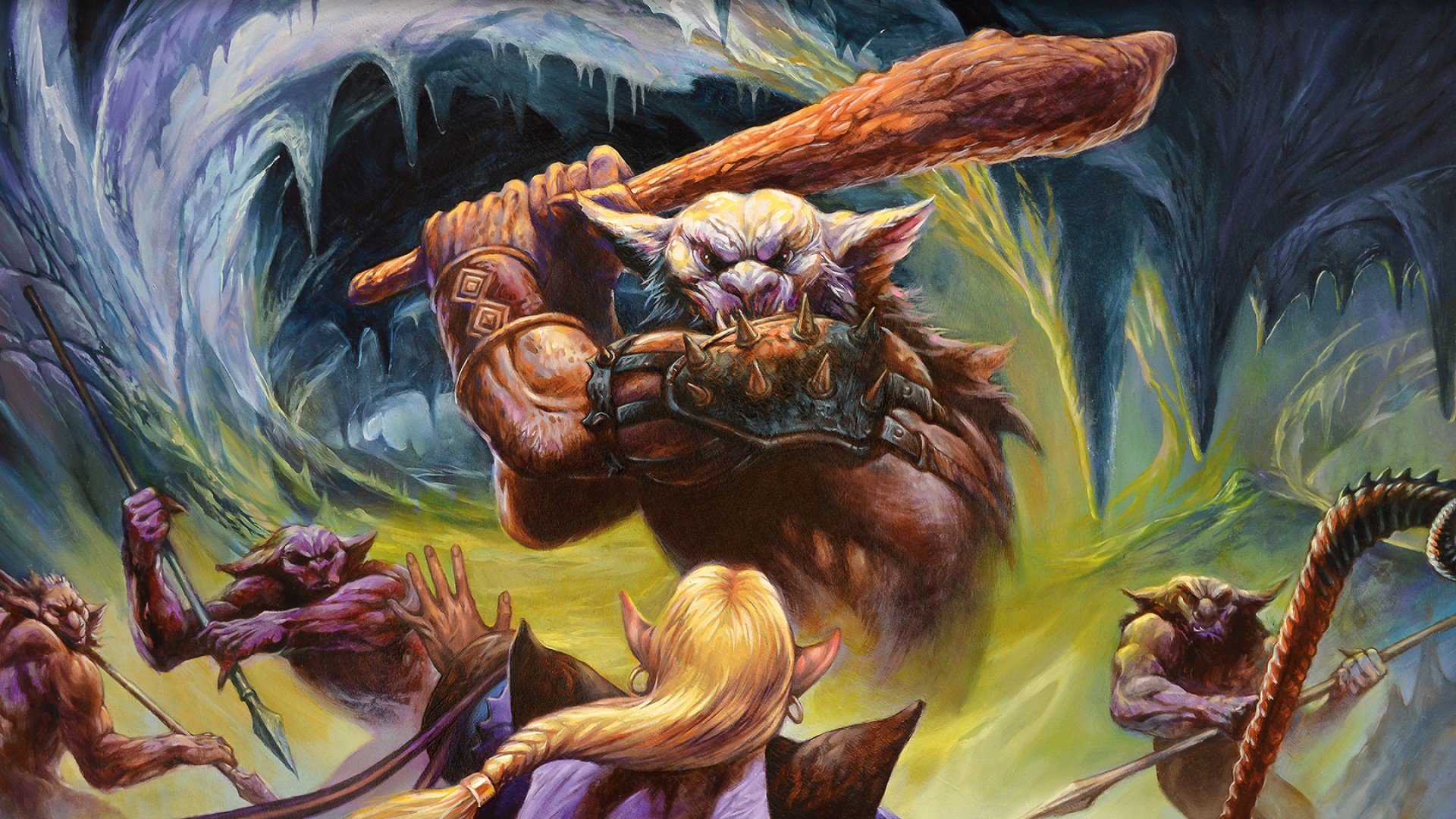Let’s face it, folks—Dungeons & Dragons is all about immersion. And what better way to dive deep into the world of fantasy than by mastering DND languages? Whether you're a dungeon master crafting an epic campaign or a player building your dream character, understanding the linguistic landscape of D&D can elevate your gameplay to legendary heights. Think about it: your half-elf rogue might not just speak Common but could also fluently curse in Elvish or negotiate in Dwarvish. It adds layers to your character’s personality and makes every roleplay session more authentic.
Now, I know what you're thinking: "Do I really need to learn all these languages?" Spoiler alert—no, you don't have to become fluent in Draconic overnight. But having a basic grasp of the most common tongues in D&D can give you a competitive edge. Maybe that ancient riddle written in Abyssal will unlock a hidden treasure chest. Or maybe that goblin warlord won't notice you're eavesdropping because you understand Giant. See where I'm going with this?
So, buckle up, adventurers. This guide isn't just going to tell you which languages exist in D&D—it's going to break down why they matter, how to use them effectively, and even throw in some cool tips for making your characters stand out. By the end of this, you'll be ready to impress your party members and confound your enemies with your newfound linguistic prowess.
Read also:Jarvis Cries The Emotional Side Of Ai That You Never Knew About
Table of Contents
- What Are DND Languages?
- Common Languages in DND
- Exotic Languages in DND
- How to Choose the Right Languages
- Using Languages in Roleplay
- Language Benefits for DND Characters
- Advanced Language Strategies
- Frequently Asked Questions
- Resources for Learning DND Languages
- Conclusion
What Are DND Languages?
Let’s get one thing straight: DND languages aren’t just random words thrown together to sound cool. They’re carefully designed systems that reflect the cultures, histories, and societies of the D&D universe. Each language has its own alphabet, grammar rules, and cultural significance. Some are spoken by humanoid races, while others belong to monstrous creatures or ancient civilizations.
For example, Common is the default tongue used by most people in the Forgotten Realms. It’s like English in our world—widely understood and practical for trade and communication. But then you’ve got languages like Elvish, which is melodic and poetic, or Dwarvish, which is harsh and guttural. These differences make each language unique and add depth to the game world.
And here’s the kicker: knowing these languages can give your character access to secret knowledge, hidden treasures, and powerful allies. So yeah, it’s kind of a big deal.
Common Languages in DND
Why Start with the Basics?
Every adventurer should start by learning the common languages in D&D. These are the ones you’re most likely to encounter during your journeys. Here’s a quick rundown:
- Common: The universal language of the D&D world. If you’re playing a human or half-elf, chances are you already know this one.
- Elvish: Known for its beauty and complexity, Elvish is perfect for bards, wizards, and anyone who wants to sound fancy.
- Dwarvish: A rugged, no-nonsense language that fits perfectly with dwarven warriors and miners.
- Goblin: Don’t underestimate this one—it’s super useful if you plan on infiltrating goblin camps or negotiating with their leaders.
These languages aren’t just tools for communication—they’re windows into different cultures. Speaking Elvish might help you gain the trust of an elven noble, while knowing Goblin could save your skin during a negotiation gone wrong.
Exotic Languages in DND
Going Beyond the Basics
If you want to take your character to the next level, consider learning some exotic languages. These are less commonly known but pack a serious punch when used strategically.
Read also:Unlocking The Mystery What You Need To Know About Warri Nigeria Postal Code
- Draconic: The language of dragons and their descendants. Ideal for sorcerers and anyone who wants to channel ancient power.
- Abyssal: Spoken by demons and chaotic evil beings. Use with caution unless you want to attract unwanted attention.
- Celestial: The tongue of angels and other good-aligned outsiders. Perfect for paladins and clerics.
- Primordial: The language of the elemental planes. Great for druids and elemental-themed characters.
Exotic languages can open doors to powerful artifacts, ancient spells, and hidden lore. Just remember, with great power comes great responsibility. Speaking Abyssal in the wrong company might just get you roasted—literally.
How to Choose the Right Languages
Picking the right languages for your character depends on several factors. First, think about your character’s background. Are they a scholarly wizard who studied ancient texts? Or a street-smart rogue who picked up a few tricks from the underworld? Your character’s history can guide your language choices.
Next, consider your campaign setting. Are you exploring the dense jungles of Chult or navigating the political waters of Waterdeep? Different settings call for different languages. For example, if you’re heading to the Underdark, knowing Undercommon could be a lifesaver.
Finally, don’t forget teamwork. Talk to your fellow players and dungeon master to see which languages might be most useful for the group. Maybe one of you can cover Abyssal while another takes care of Draconic. It’s all about synergy, folks.
Using Languages in Roleplay
Now that you’ve got your languages picked out, it’s time to put them to work. Roleplaying with languages adds a whole new dimension to your gameplay. Imagine this: you’re sneaking through a goblin camp when you overhear them planning an ambush. If you understand Goblin, you can warn your party and avoid disaster.
Or picture this: you’re negotiating with a dragon who’s threatening to destroy your hometown. Knowing Draconic might just convince the beast to spare you—or at least give you a better bargaining position.
Here’s a pro tip: use languages to add flavor to your character. Maybe your halfling bard has a knack for picking up slang from every place you visit. Or your barbarian prefers to roar in Giant instead of speaking Common. These little touches make your character memorable and fun to play.
Language Benefits for DND Characters
More Than Just Words
Knowing DND languages offers more than just bragging rights. Here are a few benefits to keep in mind:
- Access to Secret Knowledge: Many ancient tomes and magical inscriptions are written in obscure languages. Without the right skills, you’ll never unlock their secrets.
- Improved Communication: Being able to speak to NPCs in their native tongue can earn you their trust and loyalty.
- Strategic Advantage: In combat, knowing an enemy’s language can help you anticipate their moves or even turn them against each other.
Plus, there’s something undeniably satisfying about dropping a well-timed phrase in Abyssal to confuse your foes. Trust me, it’s worth it.
Advanced Language Strategies
For those of you looking to take your language game to the next level, here are a few advanced strategies:
- Create a Code: Use a combination of languages to develop a secret code for communicating with your party members.
- Learn Multiple Dialects: Some languages, like Common, have regional variations. Knowing these can help you blend in with locals.
- Teach Others: Share your knowledge with your party members to strengthen your team’s overall capabilities.
These strategies require a bit more effort, but they can pay off big time in the right situations.
Frequently Asked Questions
Got questions? I’ve got answers. Here are some of the most common queries about DND languages:
- Can I learn new languages as I level up? Yes! Many classes and backgrounds offer opportunities to gain new languages as you progress.
- Do I need to roll for comprehension? Not usually, but your DM might ask for a skill check if the situation is particularly tricky.
- Are there language-specific spells? Absolutely. Some spells require you to speak certain languages to cast them effectively.
Still unsure? Hit me up in the comments below, and I’ll do my best to help.
Resources for Learning DND Languages
Want to dive deeper into DND languages? Check out these resources:
- D&D Player’s Handbook: The definitive guide to all things D&D, including languages.
- Fan-Made Language Guides: Plenty of fans have created detailed guides and even translation tools for DND languages.
- Online Communities: Join forums and social media groups dedicated to D&D linguistics for tips and tricks.
There’s a whole world of knowledge out there waiting for you to discover it.
Conclusion
Alright, adventurers, that’s a wrap on our deep dive into DND languages. By now, you should have a solid understanding of why these languages matter, how to choose the right ones for your character, and how to use them effectively in gameplay. Remember, mastering DND languages isn’t just about mechanics—it’s about adding depth and authenticity to your roleplaying experience.
So, what are you waiting for? Grab your dice, sharpen your quills, and start practicing those Elvish phrases. And don’t forget to share your favorite language moments in the comments below. Who knows? You might just inspire someone else to join the linguistic revolution.
Until next time, stay curious, stay creative, and keep rolling those dice. Happy adventuring!


